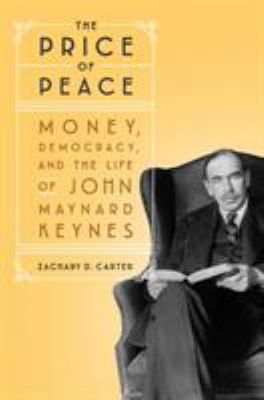
|
The price of peace : money, democracy, and the life of John Maynard Keynes
Copies
1 Total copies, 0 Copies are in,
1 Copies are out.
Title
The price of peace : money, democracy, and the life of John Maynard Keynes
Call No
330.156
Edition
First edition.
Authors
Subjects
Keynes, John Maynard, 1883-1946.
Economists--Great Britain--Biography.
Economics--History--20th century.
Bloomsbury group.
BUSINESS & ECONOMICS / Economics / General.
Keynes, John Maynard, 1883-1946. fast (OCoLC)fst00029862
Bloomsbury group.
Economics.
Economists.
Great Britain.
Keynes, John Maynard, 1883-1946 gnd (DE-588)118561804
Bloomsbury group. gnd (DE-588)4134653-1
Wirtschaftswissenschaften
Demokratie
GroÇbritannien
Biographies.
History.
Biographies.
Economists--Great Britain--Biography.
Economics--History--20th century.
Bloomsbury group.
BUSINESS & ECONOMICS / Economics / General.
Keynes, John Maynard, 1883-1946. fast (OCoLC)fst00029862
Bloomsbury group.
Economics.
Economists.
Great Britain.
Keynes, John Maynard, 1883-1946 gnd (DE-588)118561804
Bloomsbury group. gnd (DE-588)4134653-1
Wirtschaftswissenschaften
Demokratie
GroÇbritannien
Biographies.
History.
Biographies.
Language
English
Published
New York : Random House, [2020].
Publication Desc
xxii, 628 pages : illustrations (some color) ;
ISBN
9780525509035 hardcover
LCCN
2019037057
Dimensions
25 cm.
MLA
APA
Chicago
0
/
0








